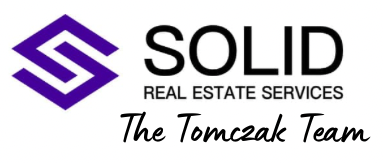Need to know what the economy is doing? Look no further than the housing market. It shows the economy’s extreme highs and lows (and everything in between). And while housing remains a necessity, the lending programs that make homeownership possible are just as critical.
Without cash in the bank to cover the full cost of purchasing a house, buyers rely on home lending programs to secure funding. However, these lending programs are not one-size-fits-all. Instead, your lender may consider your credit score, ongoing debts, military status, and even your age.
Whether you’re approaching your first home buying experience or you’ve owned your own property for decades, discover the home lending programs you need to know about in 2023.
4 Home Lending Programs To Consider In 2023
Your first step in securing the funding necessary to purchase your home is to choose the right lending institution or loan officer. Many lenders offer similar fixed or adjustable-rate loans. However, there are lenders who are willing to get creative to secure funding for their borrowers.
Furthermore, keep in mind that the information below includes typical requirements. If you don’t fit into the box of any of these lending programs, you may still have options. Whether it be a co-signer, side hustle income, or assets, there are several ways to secure the funding you need.
Depending on your situation, The Tomczak Team can point you in the direction of a reputable lender who is willing to take all your factors into account.
Ready to list, buy, or lease? Contact The Tomczak Team, SOLID Real Estate Services today at (832) 458-8519!
1. FHA Loans Are Ideal For First-Time Home Buyers
Under the umbrella of the U.S. Department of Housing and Urban Development (HUD), the Federal Housing Administration (FHA) offers loans to those who don’t meet all the requirements of other types of loans.
With fewer restrictions, FHA loans are often a good option for first-time homebuyers or those with low credit and/or little savings. More specifically, you may still qualify for an FHA loan if you don’t meet conventional mortgage requirements.
The FHA loan baseline is typically a 3.5% down payment with a minimum credit score of 580. While the federal government does not directly issue FHA loans, it does insure them to protect lenders against a borrower’s default.
FHA loans may be the right choice for you to fund a purchase or refinance of a:
- Single-family home
- Condominium
- Multi-family home with 2 to 4 units
- New construction
- Existing home renovation
- Manufactured home attached to a permanent foundation
However, it’s important to remember that to qualify for an FHA loan, the property must undergo an FHA appraisal and meet the government standards.
2. VA Loans For Service Members & Their Spouses
Only available to active military, veterans, and their spouses, VA loans are a great option if you meet the requirements.
The Department of Veterans Affairs (VA) offers VA-backed loans to service members and their surviving spouses to help them fund home purchases, improvements, and refinances. The first step to determine whether you meet the requirements is to request a Certificate of Eligibility (COE) either on your own or through your lender.
In addition to meeting the specific standards of military service, VA loans also require a minimum credit and proof of income to pay back the loan. A majority of VA loans do not require a down payment, making it an attractive lending program to all those who are eligible.
Start making moves! Contact The Tomczak Team, SOLID Real Estate Services today at (832) 458-8519!
3. Conventional Loans Can Get Creative
When it comes to conventional loans, it’s necessary to understand the difference between “conforming” and “non-conforming” loans.
Typically, “conventional” stipulates that the loan is not guaranteed or backed by the federal government. Whereas, a “conforming” loan is one that meets the Fannie Mae and Freddie Mac guidelines. A conventional mortgage may include a conforming loan, but it doesn’t work the other way around.
Because conventional mortgages don’t have government support or protection, private lenders don’t have to abide by government regulations. The lack of specific guidelines makes conventional mortgages attractive to many buyers.
If you are interested in a conventional mortgage loan, there are a few variables to be aware of.
Down Payments
Your down payment will be a percentage of the home purchase price. However, the percentage may be determined by one or more of the following factors:
- Whether you are a first-time home buyer
- If you are buying a single or multi-unit home
- Your income being more or less than 80% of the median income
- Whether you already own at least one home
- If you choose an adjustable-rate mortgage
Mortgage Insurance Rates
Private mortgage insurance (PMI) secures lenders and their investors in the event that you default on your loan. Most conventional loan lenders will require that you have PMI if your down payment is less than 20%. The cost may also vary based on your loan time, credit score, and the actual down payment amount.
However, you have options for how and when you pay for the PMI. Some buyers choose to pay upfront by including it in their closing costs. Whereas others may opt to include it as a slight increase to their interest rate instead.
The really good news is that you’re not stuck with PMI forever. Once you acquire at least 20% equity in your home, you can ask your lender to remove the PMI entirely.
Credit Score
Typically, conventional loans require a minimum credit score of 620. However, keep in mind that on-time payments, assets, and other factors may encourage a lender to work with you despite a lower credit score.
Debt-To-Income
Has anyone told you to avoid major purchases prior to purchasing a new home? Take this advice seriously. Because your debt-to-income (DTI) ratio takes into account:
- Student loans
- Auto loans
- Credit card debt
- Other debts
Overall, if your DTI is under 50%, your lender should not use it as a mark against you.
Loan Amount
If your conventional loan includes a conforming loan, it must be within the year’s set standards set by Fannie Mae and Freddie Mac. For instance, the 2023 loan limit is $726,200. This is an increase from 2022’s $647,200 limit. However, high-cost areas around the U.S. are exceptions and typically have higher loan limits.
4. USDA Loans Are Perfect For Rural & Suburbanites
For those with sights set on rural or suburban areas, the USDA home loan program might be right for you. This lending program, guaranteed by the U.S. Department of Agriculture, has the goal of stimulating economic growth throughout rural and suburban communities.
With competitive interest rates, no minimum credit score, zero dollars down, and low-cost mortgage insurance, this is a great option for first-time home buyers and low-to-moderate income households. And while, yes, the USDA intends this program to expand rural areas, many established suburban areas are eligible.
Speak to your loan officer about the buyer and land eligibility requirements for a USDA loan.
Empower Your Home Buying Experience With The Tomczak Team
Buying a home may very well be the biggest investment you’ll ever make. For that reason alone, you need a realtor who will fight for your best interests.
The Tomczak Team, Solid Real Estate Services have a knack for negotiations and you can be confident that they’ll exceed your expectations. From finding the right home for you and your family to connecting with the best lending institutions, the Tomczak Team will help you find the right place to call home without leaving any money on the table.
Ready to love your new home? Contact The Tomczak Team, SOLID Real Estate Services today at (832) 458-8519!

